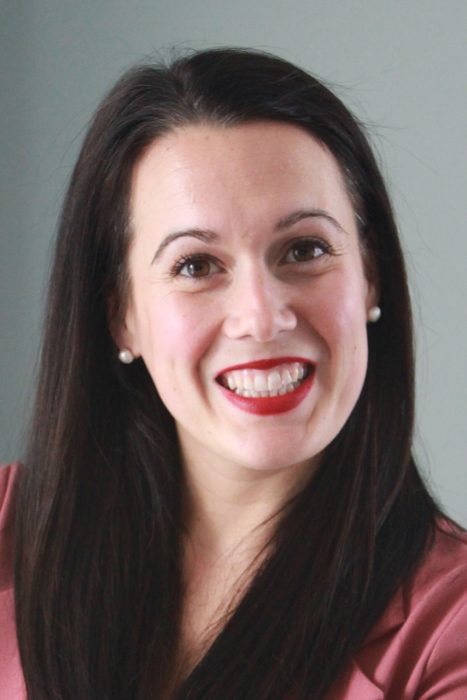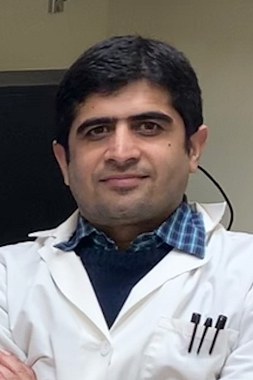
Rady researchers win awards to study tumour cells, cancer care inequity
Two scientists from the Max Rady College of Medicine are conducting research with the potential to improve cancer patients’ lives, thanks to funding support from the Canadian Cancer Society.
Dr. Alyson Mahar and Dr. Tanveer Sharif each recently received an inaugural Emerging Scholar Award from the Canadian Cancer Society. The new awards program was introduced to help early-career investigators develop their cancer research programs and pursue scientific advances.
Mahar and Sharif are among 15 award recipients from across Canada. Each scientist receives up to $600,000 of research funding over a five-year term.
“Congratulations to these outstanding emerging researchers,” says Dr. Peter Nickerson, vice-dean research of the Rady Faculty of Health Sciences. “These awards recognize that Dr. Mahar and Dr. Sharif are pursuing nationally important work with the potential to improve outcomes for patients with cancer.”

DR. ALYSON MAHAR
Mahar, an epidemiologist, joined the UM faculty in 2018. She is a research scientist at UM’s Manitoba Centre for Health Policy, assistant professor of community health sciences and adjunct scientist with the CancerCare Manitoba Research Institute.
Her five-year project involves patients as partners. It’s titled Measuring Equity and Generating ActioN in CANcer: Using research to promote equitable care delivery across Canada (MEGAN-CAN).
When someone has cancer, factors such as their income, education or where they live can influence their experience and their chances of dying, Mahar says.
“Not everyone has the same opportunities to receive a timely cancer diagnosis, benefit from new treatments or receive the care they need,” she says.
“We need to implement equity-based programming and services. In order to do that, we need to measure and better understand cancer care disparities across provinces.”
Mahar’s team will ask patients and their families to identify the most important equity gaps to target in cancer control. The researchers will use that input to create and answer research questions using large health databases in Manitoba and Ontario. Health-care providers and policy-makers will also be consulted about barriers to providing equity-focused cancer care.
The team will then develop a national platform, including a website, to provide research evidence and resources for cancer patients, researchers, clinicians and policy-makers.

Dr. Tanveer Sharif
Sharif, who joined the UM faculty in 2019, is an assistant professor of pathology and adjunct scientist with the CancerCare Manitoba Research Institute. His five-year laboratory research study examines, at the cellular level, the effects of standard radiation and chemotherapy treatments on glioblastoma, the most lethal type of brain cancer in adults.
Some cancer cells inside glioblastoma tumours have stem cell-like properties, such as the ability to self-renew, Sharif says. These stem-like cells can survive radiation and chemotherapy and restart tumor formation, so they are often called tumor-initiating cells.
“Tumour-initiating cells are the major culprits behind cancer recurrence and relapse,” Sharif says.
“We aim to better understand how the different kinds of cells in the tumours undergo metabolic and molecular changes as glioblastoma progresses. We think metabolic adaptations may be responsible for resistance to radiation and chemotherapy, and that blocking these metabolic transitions may improve response to treatment.”
Sharif’s team will use cutting-edge lab techniques to study glioblastoma cells derived from primary and recurrent patient tumors. “We have found that recurrent tumours have a higher proportion of stem-like cells and have metabolic differences from primary tumours,” the scientist says.
The researchers will use their findings to design cell metabolism-based treatment regimens with the potential to benefit patients at all stages of the disease.






